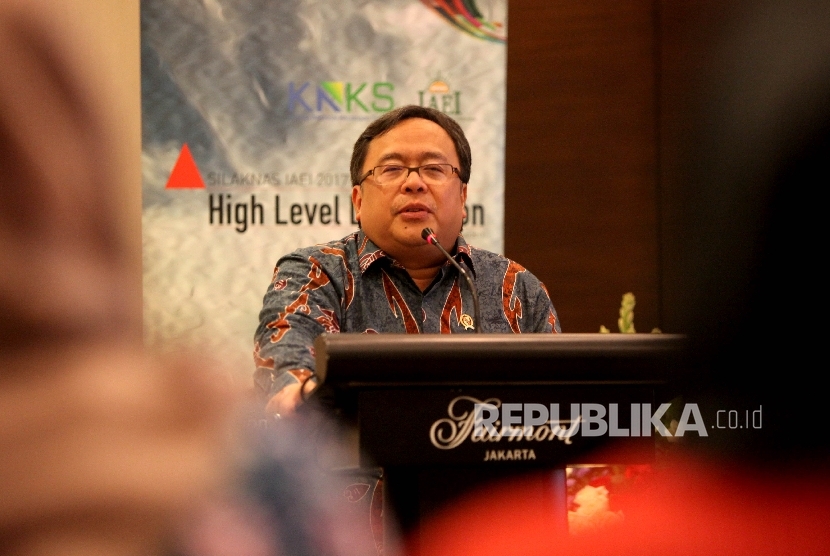REPUBLIKA.CO.ID, JAKARTA -- The reindustrialization policy must be implemented to achieve high economic growth in the subsequent decades, Head of the National Development Planning Agency (Bappenas) Bambang Brodjonegoro stated.
Bappenas is currently working to realize the Indonesia Vision 2045, an important element of which is accelerating the country's economy to escape from the middle-income trap to transform into a high-income country.
"To realize this vision, the government must implement several main policies, including the reindustrialization policy," Brodjonegoro noted during the International Conference on Indonesian Economy and Development in Jakarta on Monday.
With an integrated roadmap in place, Indonesia's economy is expected to grow at 6.4 percent annually in high scenarios.
With such growth, Indonesia will become a high-income nation by 2034, and the country's per capita gross domestic product (GDP) will reach US$29 thousand by 2045, thereby making it rank among the world's top five GDP nations, as compared to its 16th position in 2016.
"The manufacturing industry should be able to grow at an average of 7.8 percent per year in the next 30 years in order to strengthen its contribution, from 21 percent in 2015, to around 32 percent in 2045," the minister explained.
To achieve this objective, Brodjonegoro explained that the reindustrialization policy must have particular characteristics, and it is expected to be integrated from upstream to downstream to increase the contribution of the manufacturing industry to the economy.
Integration from upstream to downstream is also crucial in tackling the hollow gap in industrial structure wherein small industries share minimal relations with their larger counterparts.
"Through this integration, the productivity of small industries will be improved," Brodjonegoro remarked.
In addition, the country's economy is expected to optimally utilize digital economy and encourage innovations in economic activities.
According to Brodjonegoro, innovation and digital enhancement are significant factors to increasing productivity.
The other two characteristics are the need to improve institutional aspects that can encourage innovation as well as increased development and application of science and technology.



